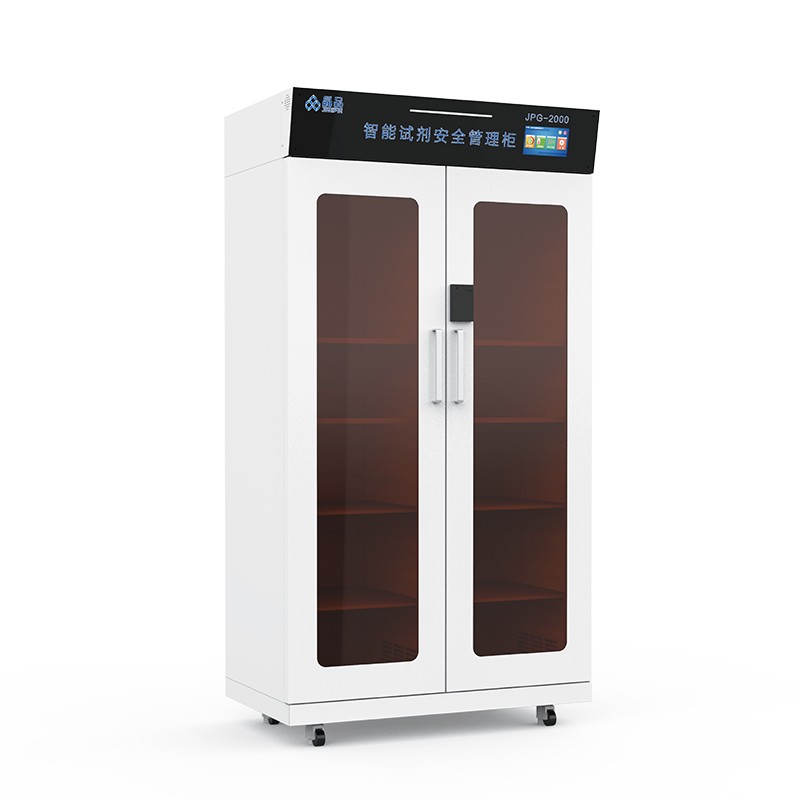
Products
Reagent cabinet, Lab reagent storage cabinet, Intelligent reagent Beijing Jingpin cabinet 2024-05-11 10:00 394
Flammable storage cabinets are specialized cabinets designed to safely store flammable liquids, chemicals, and other hazardous materials. These cabinets are crucial in maintaining workplace safety and preventing fires or explosions. Here are some key points about flammable storage cabinets:
Fire Resistance: The cabinets are constructed from fire-resistant materials such as steel and are designed to contain any fire that may occur within the cabinet. They typically have a fire rating, indicating how long the cabinet can contain a fire before the temperature inside exceeds a certain threshold.
Ventilation: Flammable storage cabinets often have vents that allow the escape of flammable vapors. These vents are typically designed to prevent the ingress of sparks or flames while still allowing vapors to dissipate.
Self-Closing Doors: Many cabinets have self-closing doors that automatically shut if left open, reducing the risk of accidental spills or vapors escaping.
Lockable: To prevent unauthorized access, many cabinets can be locked with a key or combination lock.
Compliance: These cabinets are often designed to meet specific safety regulations and standards, such as OSHA (Occupational Safety and Health Administration) and NFPA (National Fire Protection Association) standards.

Labeling: Proper labeling of the contents and hazards inside the cabinet is crucial for safety. The cabinets should have clear labels indicating the type of material stored and any specific hazards.
Organization: Cabinets often have shelves or trays to help organize and separate different types of chemicals or liquids. This helps prevent accidental mixing or contamination.
Grounding: To prevent static electricity build-up, many cabinets are grounded to dissipate any potential electrical charges.
It's important to ensure that your workplace has the appropriate flammable storage cabinets for the types of materials you store and that they are properly maintained and inspected regularly. Always consult with your local safety regulations and experts to ensure compliance and safety.
Demand feedback